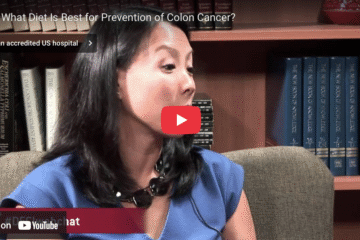Doctors Find A New Clue About What’s Causing Colon Cancer in Young People
Fast Facts:
- Colon cancer rates are rising in people under 50 years old, but going down in older people.
- Younger people are more likely to have more advanced, and more aggressive, cancer than older people at the time of diagnosis.
- Doctors have found that young people with colon cancer are 3 times more likely to have DNA damage due to a chemical (called colibactin) produced by strains of E. coli.
Colon and rectal cancer has traditionally been a disease of older adults. As a matter of fact, the majority of cases of colorectal cancer (CRC) is diagnosed in people over 60 years of age. Luckily, the rate of CRC in people over 50 years old has been going down steadily over the past several decades. This trend is thought to be due to increased screening and awareness of symptoms.
Unfortunately, the rate of CRC is going in the opposite direction in younger people. What’s even more alarming is that CRC in young adults tends to be more advanced at the time of diagnosis. The cancer is oftentimes more aggressive, as well, meaning that it can have a worse outcome. Doctor’s have worked to figure out why this disturbing trend is happening. A recent study published in the medical journal, Nature, found a new characteristic of CRC in young people that isn’t seen frequently in cancers of people over 70. Let’s take a look at the report and what it means.
Who gets colorectal cancer?
Anyone can get colorectal cancer, but typically it’s been a disease of older people. Due to improved screening, such as colonoscopies and FIT tests, polyps are being caught before they become cancerous and cancer is being found at an early stage while it’s still curable. Current guidelines recommend that every American adult be screened for CRC beginning at age 45. Increased awareness and screening has led to a steady decrease in CRC in people over 50 years old.
Young people don’t need to worry about CRC, right?
The same drop in CRC rates isn’t true for younger adults, meaning those under 40. CRC deaths are on track to become the #1 cause of cancer deaths in young people by 2030. CRC diagnosis and deaths have doubled in young people in the past 20 years. Part of the reason that young people have a worse outcome than older individuals is thought to be that CRC is more advanced at the time of diagnosis. This may be due to a lack of awareness about symptoms, chalking bowel changes up to stress or other benign causes, or embarrassment about discussing bowel issues. Another reason for the worse outcome may be that the cancer may be more aggressive than CRC in older adults. How aggressive a tumor is and how far it has spread has a major impact on whether it can be cured or not.
So what’s different about CRC in younger adults?
For many years, doctors have thought that the microbiome– the collection of bacteria, viruses and fungi found in every person’s gut- plays a big part in whether an individual gets colon cancer, and how hard it is to treat. A new study published in the journal, Nature, specifically looked at DNA changes in patients with colon cancer. They found evidence that a chemical called colibactin had damaged (mutated) the DNA of younger patients with CRC. Colibactin is made by an unhealthy strain of the bacteria, E. coli. Patients under 40 years of age were 3-5 times more likely to have those changes in their DNA than those over 70 years old.
Why are young people more at risk for this type of DNA damage?
The researchers who published the article suggest a few ideas for why this type of damage is seen in younger people and not in older adults. They speculate that the damage happens during the first ten years of life. The mutations happen early, and then take years to develop into cancer. Some of the reasons that may lead to the proliferation of dangerous strains of E. coli include:
- Increased use of antibiotics over the past several decades. Antibiotics kill off good bacteria and can make it easier for more dangerous bacteria to thrive.
- The rise in highly processed foods, especially processed meats.
- The lack of fiber in modern diets. Fiber has been shown to promote a healthy microbiome.
- The presence of microplastics disrupts a healthy microbiome.
The world has changed dramatically in the last 40-50 years. Many of our modern innovations may have a negative impact on gut health.
What can I do to maintain a healthy gut?
Doctors don’t think that unhealthy strains of E. coli are the “one size fits all” answer to the colon cancer epidemic in young people. Here are some ways that you can keep your gut healthy to reduce your (and you child’s) risk of developing colon cancer:
- Get plenty of fiber.
- Use antibiotics only when necessary.
- Minimize alcohol use and tobacco.
- Get exercise on a regular basis.
- Avoid processed foods, especially red meats and those high in sugar or fat.
- Maintain a healthy weight.
You can’t change your genetics or what happened in the past, but you can make these positive changes to reduce your future risk.
The Bottom Line
Colon cancer rates are rising in people under 40, but dropping in older age groups. Researchers have found a specific type of DNA damage in young people with CRC that they attribute to a chemical made by unhealthy bacteria. The chemical, colibactin, is made by a strain of E. coli. While this new discovery doesn’t appear to be a smoking gun, it does reinforce the need for everyone to maintain a healthy gut microbiome in order to reduce your risk of CRC. If you have any suspicions that you might have colon cancer, talk to your doctor about getting checked out. Check it for the ones you love. CheckIt4Andretti.



0 Comments